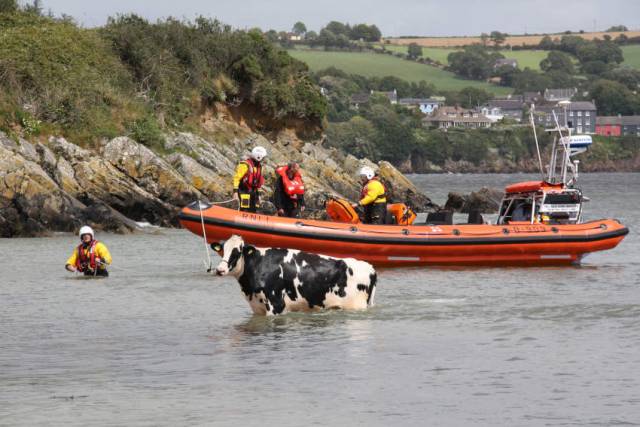A cow named Ghost was saved from Kinsale Harbour at the weekend after slipping down a cliff from the field above — in what also marked a second animal rescue this year for Kinsale RNLI.
Kinsale’s lifeboat volunteers launched on Saturday afternoon in Force 7 winds and choppy seas to the scene, where the year-old Holstein Friesian cow had dropped some distance and was in an agitated state, Kinsale RNLI says.
Attempts to lasso the cow from the inshore lifeboat failed as the animal panicked and resisted the lifeboat crew’s efforts.
But after bringing out the cow’s owner — local farmer Brian Hayes — to assist, they were able to fit a halter and tow Ghost back to shore.
“She’s always been hyper since she was a calf,” Hayes said back on the farm. “She’s out in the shed now drinking and eating normally, thankfully. The lads were great and I really am fierce grateful to the RNLI.”
This is the second animal rescue for the Kinsale crew in 2019. In February, they assisted a horse that had become trapped in local oyster trestles.
“While we are delighted to save animals, our primary concern is always for human life,” lifeboat helm Jonathan Connor says.
“We were eager to prevent the farmer, who was a non-swimmer, and other bystanders from entering the water and attempting the rescue themselves, and were also conscious of a number of people on the nearby beach who could have been put in danger.”
If you see anyone in danger on or near the water, dial 999 or 112 and ask for the coastguard.































































